Frequency: Half-yearly
Time to first decision: 2.4 Weeks
Submission to publication: 4 Weeks
Acceptance rate: 26%
ISSN: 2972-3418
Frequency: Half-yearly
Time to first decision: 2.4 Weeks
Submission to publication: 4 Weeks
Acceptance rate: 26%
ISSN: 2972-3418
Australian Institute for Bioengineering and Nanotechnology, The University of Queensland, Australia
Prof. Xu is a senior group leader at the Australian Institute for Bioengineering and Nanotechnology, The University of Queensland. His research focuses on control preparation of layered double hydroxide nanomaterials, calcium phosphate nanoparticles, nanoemulsions, quantum dots, chemosensros and nanosensors, and their applications in biomedicine and agriculture. He has published over 330 peer-reviewed journal papers, conference papers and book chapters. His research has led to many high quality papers published in Nature Plants, Adv Mater, Nano Letters, JACS, Angew Chim Int Ed, Adv Funct Mater, Biomaterials, J Control Release, Chem Mater, Small, Nanoscale, ACS Appl Mater Interface and nanomedicine. Specifically, his publications on layered double hydroxide materials from 2008-2018 rank him in the top #6 among more than 1000 scientists in this research field in terms of the journal paper count. His papers have been cited over 19,395 times with the H-index of 75. He works as Editorial Board Member for six journals, such as Journal of Nanotechnology and Smart Materials, Frontiers in Inorganic Chemistry, Biointerface Research in Applied, and Current Pharmaceutical Design. He also served as reviewers of over 20 journals, including JACS, Biomaterials, Small, Nature Commun, Nanoscale, Adv Functional Mater, Chem Mater, ACS Appl Mater Interface, J Mater Chem B, J Phys Chem B and C.

Department of Molecular Cell and Cancer Biology, University of Massachusetts Medical School, US
Dr. Huang focuses on the molecular mechanism of obesity (BAT development and iWAT browning), diabetes (selective and total insulin resistance) and cancer therapy. He has published more than 30 papers (first author or corresponding author) in scientific journals including Nature Communications (3 papers); Advanced Science; Cell Reports; Journal of Biological Chemistry; Developmental Cell. He was awarded Top 1% global reviewer in the field of Clinical Medicine, Molecular Biology & Genetics and Cross-field by Web of Science Group and Publons in 2018 and 2019; He served as a grant reviewer for Nature Science Foundation of China (life science and medicine); He also served as a reviewer for 50 SCI journals and a scientific editor for 10 SCI journals.

Hangzhou Institute of Technology, Xidian University
Dr. Jiang is currently a PI and an associate professor at Hangzhou Institute of Technology, Xidian University, Xi’an, China. He earned his Ph.D. in Solid Mechanics from Huazhong University of Science and Technology (HUST), Wuhan, China, in 2018. He then worked as a Postdoctoral Fellow in HUST during 2019-2022. His research interests include design, manufacturing, and application of flexible electronics, bioelectronics, metamaterials, and metasurfaces. He proposed the concepts of ‘flexible metamaterial electronics’ and ‘electronic armor’ in research community for the first time. By now, he has published 1 monograph and more than 20 papers (first author or corresponding author) including some papers in high-profile journals such as Advanced Materials (2 papers), Innovation (2 papers), Materials & Design, Carbon, and Composite Structures. His research proposals have achieved funding support from the National Natural Science Foundation of China, the National Key Research and Development Project, the Fundamental Research Funds for the Central Universities, etc. He served as a grant reviewer for National Natural Science Foundation of China (Engineering and material science). He also served as a guest editor of Rare Metals and a reviewer for 20 SCI journals.
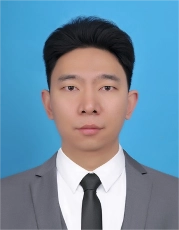
Wuhan University of Technology, China
Prof. Francis Verpoort holds the position of Chair Professor at the State Key Laboratory of Advanced Technology for Material Synthesis and Processing, Wuhan University of Technology, where he also serves as the Director of the Laboratory of Organometallics, Catalysis, and Ordered Materials (LOCOM). He published more than 440 articles, edited 4 books, and owns more than 20 granted patents. LOCOM's primary research thrust revolves around the investigation of the structure and mechanisms underlying organometallic material chemistry, with a specific focus on Metal-Organic Frameworks, Porous-Organic Polymers, and their applications in electro-, photo-, and thermo-catalysis. A particular emphasis is placed on comprehending the intricate mechanisms governing metal-organic frameworks and their derivatives, aiming to leverage this understanding in the development of advanced technologies for clean energy and environmentally conscious applications. Notably, these encompass water splitting, fuel cells, organic catalysis, as well as CO2 capture. In recognition of his scholarly contributions, Professor Verpoort has garnered numerous accolades, including the prestigious "Dr. Basudev Banerjee Memorial Award" India, Fellowship of the Indian Chemical Society (ICS), Fellowship of the Royal Society of Chemistry (RSC). In recognition of his scholarly eminence, he has been elected as a member of renowned academic societies including the European Academy of Sciences and Arts (EASA), the Russian Academy of Natural Sciences (RNAS), and the Mexican Academy of Sciences. Furthermore, he has been designated as a "National Distinguished Expert" in PR China, a "Specially Appointed Expert" of Hubei Province, and has been elected as an "Expert of the State" under the auspices of the "National High-Level Talents Special Support Plan" in China.

Department of Physics, The University of Texas at Arlington
Prof. Chen has been engaged in cutting-edge nanotechnology research for many years and he is an internationally renowned expert in nanomedicine and cancer nanotechnology. He is well known for his inventions in cancer nano-targeted therapy and deep cancer photodynamic therapy. Currently he has published more than 320 papers in famous academic journals such as PNAS (IF 12.779), Nano Letters (IF 12.262), Signal Transduction and Targeted Therapy (IF 38.104), Advanced Materials (IF 32.086), Advanced Functional Materials (IF 18.808), Materials Today Physics (IF 11.02), Bioactive Materials (IF 16.874), Coordination Chemistry Reviews (IF 24.833) etc. He has 20 US patents granted and He has been funded with more 30 scientific research projects with a total funding of more than 9 million U.S. dollars. He was one of the 35 scientists from the country (US) to be included in the National Academy of Inventors 2020 class of Senior Members. He was elected be a Fellow of the International Association of Advanced Materials (IAAM) and a Vebleo Fellow in 2020, a Sigma Xi full member, a Pencis award for International Research Awards on Oncology and Cancer Research and a Fellow of Royal Society of Chemistry (UK) in 2021 and the IMMA scientist award in 2022 for his outstanding contribution to Nanotechnology. He conceived and initiated a new Homeland Security Research Center at UTA and serve as the director for this center - the Center for Security Advances Via Applied Nanotechnology (SAVANT) from 2012 to 2018.
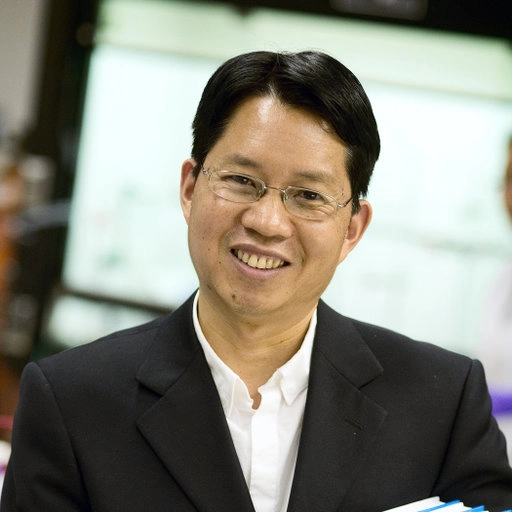
Xi'an Jiaotong University, China
Prof. Wang is currently a Professor at Xi’an Jiaotong University, and also a Fujian Provincial “Minjiang Scholar” Chair Professor. His main research area is biomedical imaging and cancer theranostics. In recent years, Prof. Wang has published more than 40 SCI papers in international mainstream journals such as PNAS, Nature Protocols, Nucleic Acids Research, Oncogene, etc. He also authorized more than 10 Chinese invention patents, and won the first prize of Shaanxi Provincial Higher Education Science and Technology Award, the third prize of the Shaanxi Provincial Science and Technology Award as the first contributor.
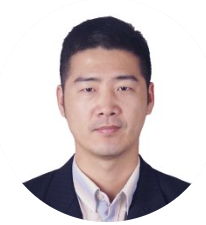
HEC Pharma Co. Ltd., China
Professor Zhu focuses on antitumor drug, biomaterials, drug delivery, functional materials and catalysis. He has authored or co-authored over 85 journal articles and 12 book chapters, including Journal of the American Chemical Society, Angewandte Chemie - International Edition, Coordination chemistry reviews, etc. with more than 3300 citations with a h-index of 32. He is also a reviewer for many scientific journals.

Chengdu Medical College, China
Dr. Wei Zhao is currently an associate professor at the school of Laboratory Medicine at the Chengdu Medical College. His active research fields include (1) reversal of multidrug resistance induced by reprogrammed metabolism, (2) new drug research and development for treatment of cancer patients, (3) primary cancer tissue culture and test of drug sensitivity for personalized chemotherapy. He has published over 30 papers in related fields, including Oncogene, JBC, Front. Immunol and Mol. Cancer.

Department of Genetics, School of Medicine, Yale University
Pawar is an Assistant Professor (tenure-track) in Department of Computer Science and Biology at Claflin University with a Masters in Computer Science and a Ph.D. from Georgia State University, Atlanta. He’s also an co-founder of a Connecticut based AI company, ChestAi, and a research affiliate at Yale University School of Medicine. Until last year, he was an Associate Research Scientist at Yale Center for Genome Analysis. His dissertation was focused on big data (next-generation sequencing, microarrays, X-ray crystallography etc.) analysis with machine learning techniques (Neural networks, SVM’s, Restricted boltzmann machines, Clustering algorithms etc.). He has published more than 100 peer-reviewed publications and their findings have been published in some important professional journals, such as The Lancet(7 articles), BMC Bioinformatics,The Lancet Haematology,Plos one and so on.

Centre for Metabolism, Obesity and Diabetes Research, McMaster University, Hamilton, Ontario, Canada
Division of Endocrinology and Metabolism, Department of Medicine, McMaster University, Hamilton, Ontario, Canada
Dr. Dongdong Wang is a senior scientist at McMaster University. His current research is focused on drug-discovery for cardiovascular disease, NASH, obesity, and diabetes. He has published more than 60 peer-reviewed articles in high prestigious journals such as Nature, Nature Review Endocrinology, Nature Metabolism, Pharmacological reviews, Biotechnology Advances, Seminars in Cancer Biology, and many others. He has co-edited several special issues of scientific journals. Currently he is an editorial board member on several scientific journals and an active reviewer on more than 50 journals.
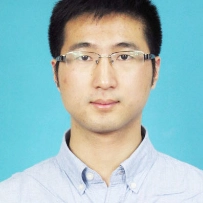
Johns Hopkins University, US
Dr. Zhiwei Fang focuses on biomaterials, gene delivery, and drug delivery. He has authored or co-authored over 17 journal articles including Chemical Reviews, Journal of Nanobiotechnology, Biomaterials Science, and Frontiers in Immunology. He is also a reviewer for many scientific journals.
Quantum-Atom Optics Laboratory and Research Center for Quantum Technology, Faculty of Science, Chiang Mai University, Chiang Mai 50200, Thailand
Dr. Rami Ahmad El-Nabulsi focuses on general relativity and gravitation, operators theory, quantum field theory, plasma MHD and planetary dynamics, chaos and bifurcations, reactor physics and nuclear sciences, solid state physics and magnetism, quantum electronics. He has been selected as the “Top 2% Scientists“ in 2022 and 2023 respectively. Until now, he has published more than 330 articles in peer refereed journals with Impact Factor, such as Chaos, Solitons & Fractals, Nonlinear Dynamics, Applied Mathematics Letters, Journal of Physics and Chemistry of Solids, Fractals, Applied Mathematics and Computation, etc. And he works as Editorial Board Member for 25 journals. He also served as reviewers for more than 150 journals.

School of Chemistry and Chemical Engineering, Zhongkai Agriculture University of Engineering, Guangzhou, China
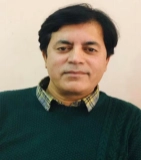
University of South Florida, USA
Ricardo Izurieta, MD, Dr.PH, MPH is Professor and Director of Global Communicable Diseases at College of Public Health and Director of the Public Health Scholar Concentration at Morsani College of Medicine, University of South Florida in Tampa. In 2003, Dr. Izurieta was elected Vice President of the Gorgas Memorial Institute of Tropical and Preventive Medicine and currently he is its Latin American Liaison. He has been Panel Reviewer for NIH, CDC, and NSF, Wellcome Foundation, and also served on the ACAIM Taskforce on International Health Security, Consultant for the United Nations Global Water Pathogens Project as well as for the United Kingdom and the Brazilian Academies of Sciences.

Institute for Cancer Genetics, Herbert Irving Cancer Research Center, Columbia University, US
Dr. Yanqing Liu focuses on the roles of p53 in tumor development and functions of non-coding RNA in tumor. He has published more than 20 papers in scientific journals including Cell Death Differentiation, Seminars in Cancer Biology, Molecular Cancer, Protein Cell, and Journal of Molecular Cell Biology. He also serves as reviewer for more than 50 journals including Frontiers in series, BMC series, Molecular Oncology,Biomedicine & Pharmacotherapy, and Cell Communication and Signaling.
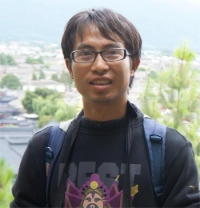
Institute for Cancer Genetics, Herbert Irving Cancer Research Center, Columbia University, US
Dr. Zhe Wang focuses on the potential role of PTMs in cancer-related proteins and ferroptosis regulation in response to metabolic stress, especially NRF2-KEAP1 system and splicing proteins. She has published around 10 papers in scientific journals including Molecular Cell, Cancer Research, EMBO Reports, Oncogene and The FASEB Journal. She also serves as reviewer in Oxidative Medicine and Cellular Longevity and Frontiers in Molecular Biosciences.

New York University Grossman School of Medicine, US
Dr. Qiao Lu focuses on the understanding of tumor immune evasion mechanisms and to develop the next-generation immunotherapies for treating cancer. He has published high-quality papers in scientific journals including Immunity, Nature communications, Nano letters, Cell research, and so on. He also serves as reviewer for Aging, BMC Immunology, Cancer Cell International, Journal of Medical Discovery, Frontiers in Genetics, Frontiers in Immunology, Heliyon, Open Medicine, Discover Oncology, and PLOS ONE.
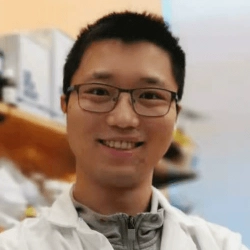
National Institute of Neurological Disorders and Stroke, NIH, US
Dr. Xin Wang focuses on the roles of B-/T-lymphocytes in tumor development and neurodegeneration. She has published 14 papers in scientific journals including Nature communications, Cancer Research, Cell Discovery, and Journal of Molecular Cell Biology. She also serves as a guest editor or reviewer for more than 9 journals including Nature Aging, Frontiers in series, Biomedicine & Pharmacotherapy, and Journal of Oncology.
Beijing Key Laboratory for Bioengineering and Sensing Technology, Daxing Research Institute, School of Chemistry and Biological Engineering, University of Science and Technology Beijing, China.
Henan Mental Hospital, Xinxiang, 453000, China

Chest Hospital, Tianjin University, China